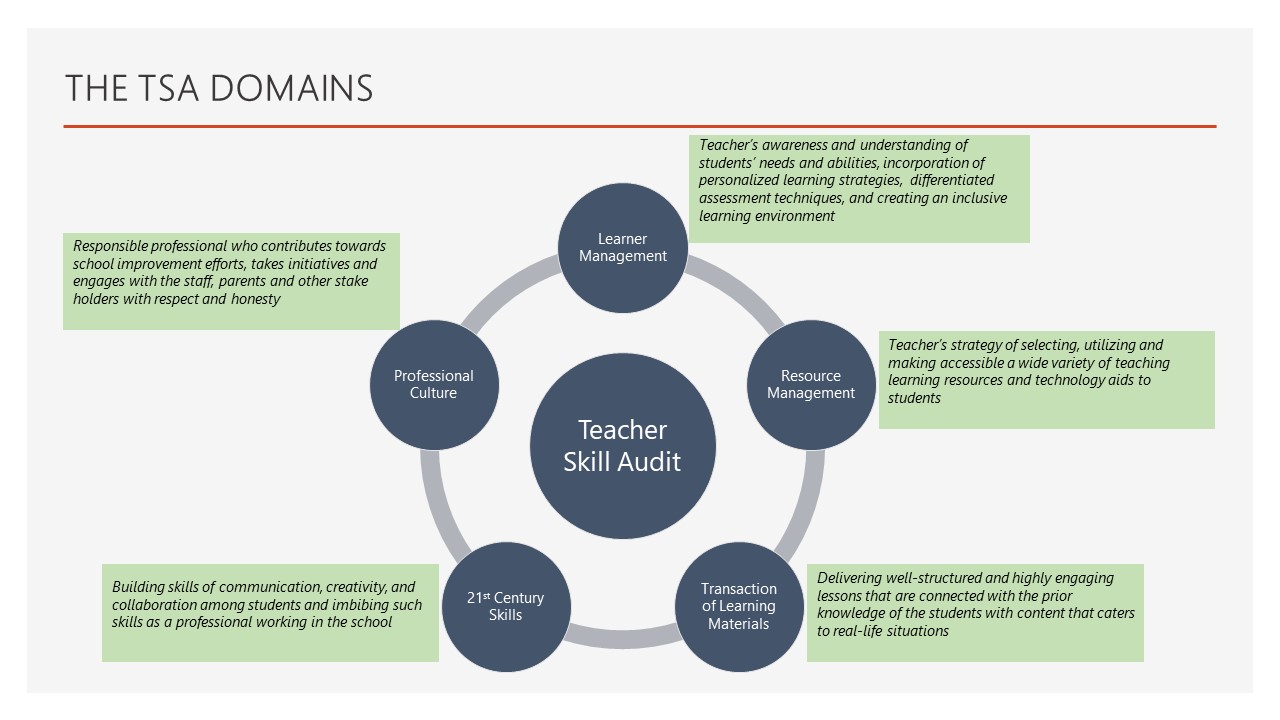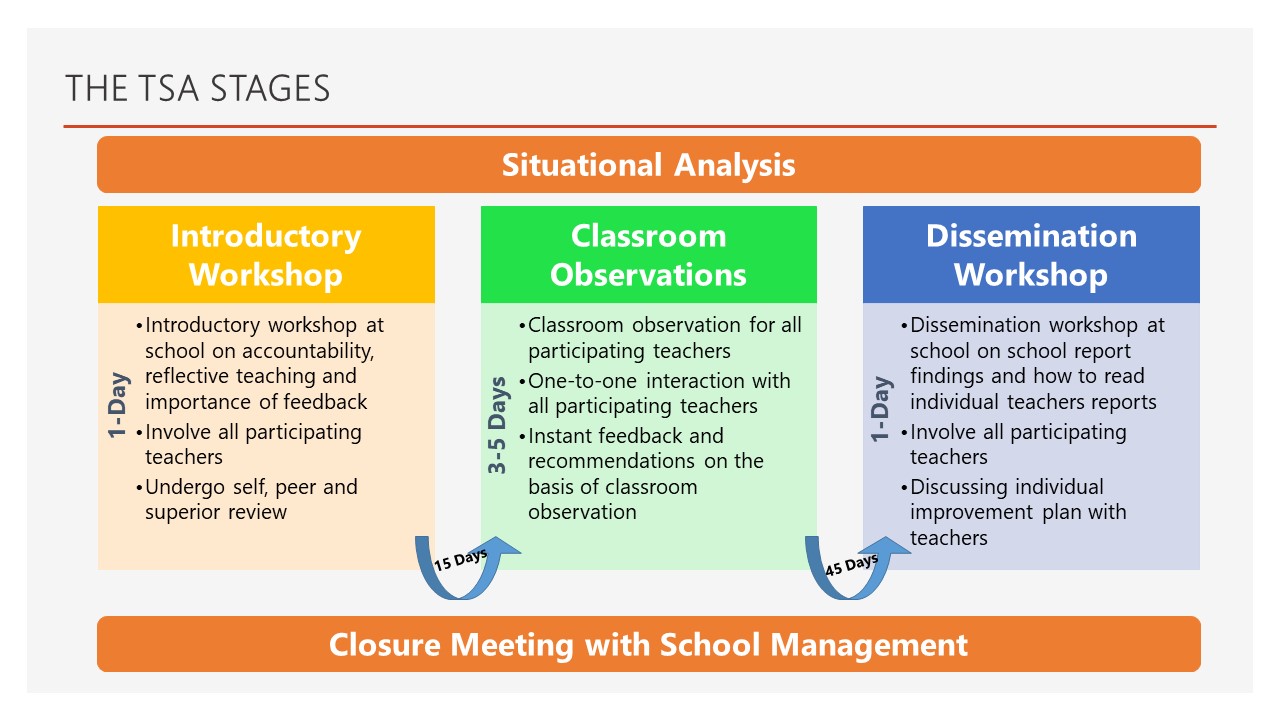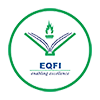Teachers are the driving force towards making a fundamental contribution for providing good quality education and an enabling learning environment. The success of any education system depends on the quality of teachers, which in turn, depends on how effectively are teachers developing their ability to help students to learn and achieve future success. Students are the primary beneficiaries of all the interventions done in the learning process and teachers’ role is of utmost importance as they make a tangible difference in student achievement.
Teacher Skill Audit is an exercise that is focused on providing performance feedback to teachers through a multi-source feedback process. This exercise encompasses self-assessment, assessment by superiors and peers, classroom observations and one-to-one interactions that inform the overall position of the teacher within the laid down core standards of quality teaching.
The WHY
It has been increasingly recognized that one of the most important factors determining student achievement is teacher quality. However, there are challenges to measuring teacher quality. A well-established, unbiased system of monitoring teacher effectiveness in an institution will enable the management to:
- Bring accountability into the system
- Identify the strengths and areas of improvement for teachers in the system
- Support teachers in their professional development endeavours
- Utilise resources more effectively within the school system.
The WHAT
The biggest strength of our Teacher Skill Audit exercise is its collaborative and supportive nature where we take appropriate steps to make teachers aware that they are contributing to a valuable exercise which will inform whole-school improvement, enhance their teaching effectiveness, and further their growth as a professional.
The Teacher Skill Audit approach is focused on assessing five areas of teaching-learning practice that will help inform teachers about their strength areas as well as areas of improvement:

The HOW
TSA consists of series of intervention steps that feed into quality measurement of an institution with regard to its academic planning, implementation and reflection through:

Potential benefits of Teacher Skill Audit
It has been increasingly recognized that one of the most important factors determining student achievement is teacher quality. However, there are challenges to measuring teacher quality. A well-established, unbiased system of monitoring teacher effectiveness in an institution will enable the management to: School improvement is synonymous with the simple reality that it’s the teachers who matter the most. They establish the standards and expectations within each class and grade level. They are the agents of change. In order to maximize the skill and potential of individual staff member and recognize the professional needs of each teacher, it is imperative to take support of a model that would inform professional learning opportunities and create a culture of trust and collaboration where constructive, objective and actionable feedback on teacher practice is a regular exercise.
An external audit of this type is neutral, not based on any prior knowledge of the teacher, not influenced by internal relationships, and is data oriented.
The TSA exercise will help the school management in:
- Gaining new insight into staff abilities, their strengths and weaknesses.
- Identifying ways to improve individual teachers’ professional practices and organize need-aligned teacher trainings accordingly.
- Providing access to structured professional development to meet individual development needs of the teachers.
- Creating a more enriching, supportive and motivating environment for staff where observations, feedbacks and sharing of ideas form a part of the teaching learning process.
The TSA exercise will help the teachers in:
- Gaining insight into their instructional strengths, personality strengths, and areas for improvement.
- Providing constructive feedback on teaching practices that support them in minimizing areas of weakness.
- Providing an opportunity to design a development plan that supports their aspirations for becoming better teachers and identifying action steps to be taken.
